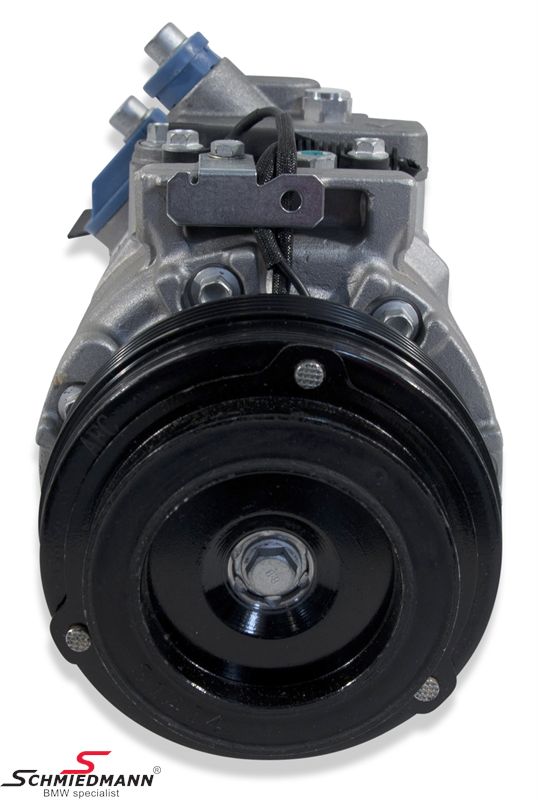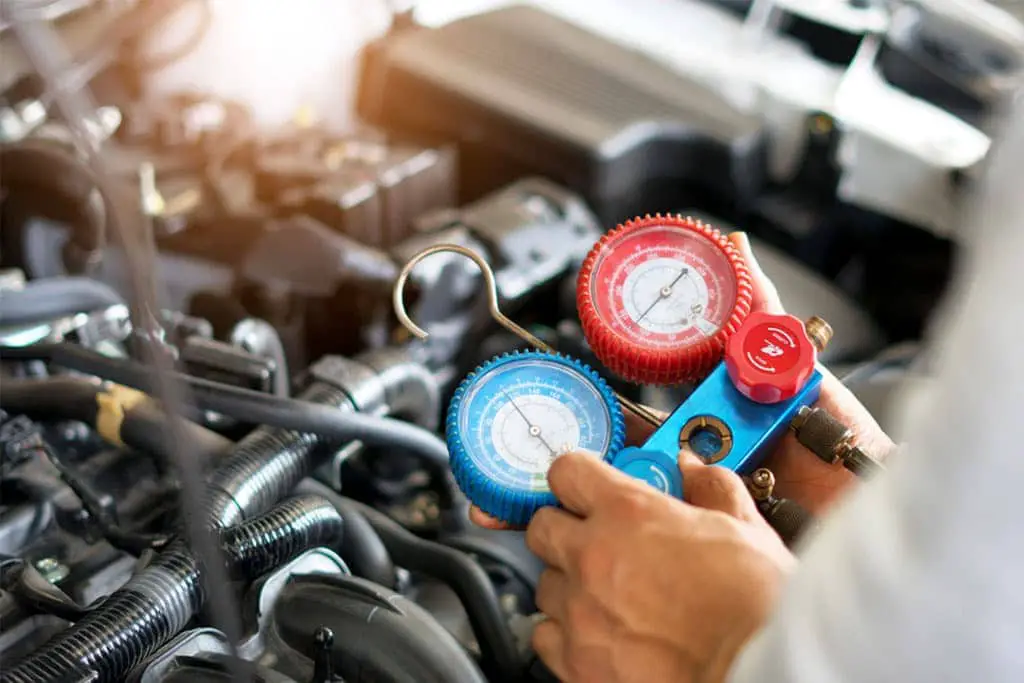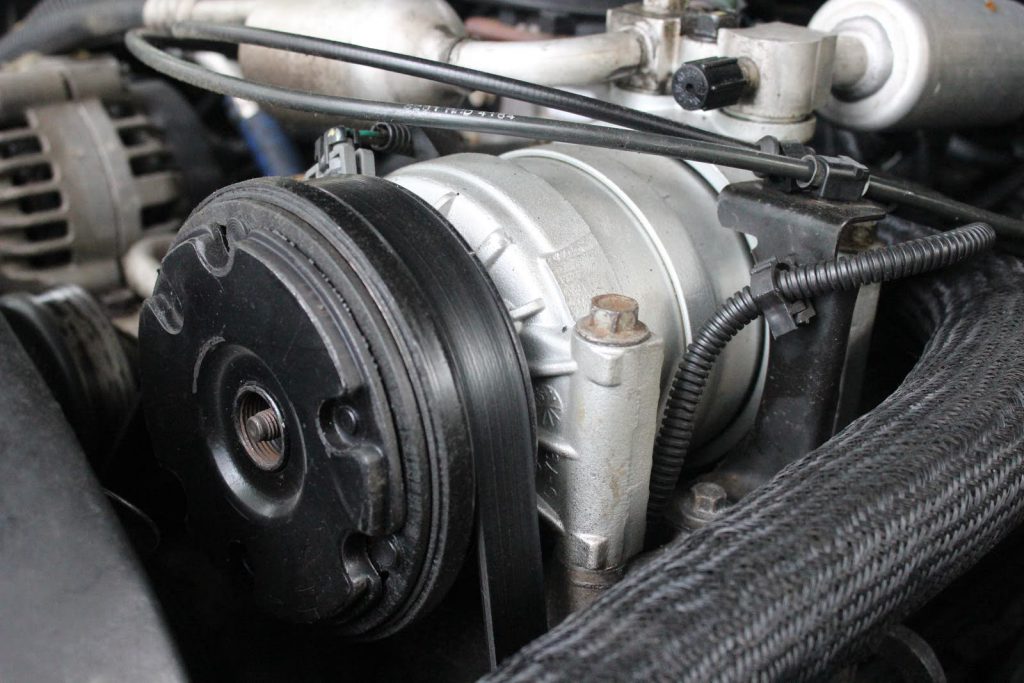

Faulty electrical system: Broken fuses or frayed wires can cause issues within the AC system because components aren't being activated at the right times.
#Auto aircon compressor repair full
It’s not uncommon to see condensers full of gunk, bugs and dirt when customers arrive at a shop complaining about warm air blowing.
Clogged condenser: Since the compressor needs surface area to operate, road debris or damage can prevent it from doing its job. If the compressor clutch is failing, it will make an audible “clunk” when engaging the compressor eventually, it will stop functioning completely. The compressor clutch spins freely when the AC isn't in use and activates when the compressor needs the power to operate. Failing compressor clutch: Compressors are attached to the engine via a serpentine belt. Leaking refrigerant: Air conditioners are closed systems, and if their refrigerant is allowed to leak out, they can't maintain pressure, causing the whole process to fail. Over time, all cars will eventually need their AC systems recharged. This is normal and occurs because of the high pressure in the system. Low refrigerant: Over time, all AC systems will need to be refilled or “recharged” with refrigerant. The refrigerant contains lubricant, and once it’s gone, the compressor will often fail due to friction. Compressors usually fail because of a leak in the system or a lack of refrigerant. If the refrigerant is not compressed into a high-pressure, high-temperature gas, all other parts of the system won't work properly. AC compressor is failing: Compressor issues are some of the most common failures in air conditioning systems. If your AC stops blowing cold air, it could be a number of possible issues: Your AC may turn on and blow air, but if the air from your vents isn’t as cold as you’d like, it’s not of much use. Air is blown over these supercooled tubes and into the cabin as cool air.Ī faulty air conditioner can present itself in multiple ways so, if you notice any of the following problems, your car’s AC could be to blame. Evaporator: Located behind the dash, the evaporator turns the liquid back into a gas in tubes.  Expansion valve or orifice: Allows the system to bleed off pressure at a carefully measured rate and quickly lower the temperature.
Expansion valve or orifice: Allows the system to bleed off pressure at a carefully measured rate and quickly lower the temperature. 
Dryer: Contains a material (known as a desiccant) that removes water from the refrigerant.Generally mounted near the grille of your vehicle. Condenser: Uses moving air to rapidly cool the high-pressure, high-temperature gas, turning it into a low-pressure liquid.Compresses low-pressure gas into a high-pressure, high-temperature gas. Compressor: Functions as a power unit for the system and is attached to the engine via the serpentine belt.To better understand this complicated process, here’s a closer look at each major component in an AC system and how it functions. In a technical sense, air conditioning works by forcing a refrigerant to change from liquid to a gaseous state in a pressurized closed loop.
 Extended warranty coverage can minimize the cost of repairing or replacing a car's AC system. Servicing a car’s AC system by recharging it or fixing leaks is much less expensive than replacing a part like the compressor, evaporator or condenser. There are multiple reasons why your vents might stop blowing cold air. Keep reading to learn about the symptoms of a faulty car air conditioner, how AC works in a car, how much you might spend fixing your car’s AC and when it’s time to repair or replace your AC system. Just remember that your costs will vary based on your vehicle’s make and model, the price of parts and the shop rate on labor where you get the job done. Average estimates for servicing the air conditioners in our sample vehicles ranged from $430 to $521, but quotes for compressor replacements were far higher, at $1,319 to $2,515, on average. We surveyed five different mechanics from around the country to help you get a better idea of what repairing your car’s AC might cost you. Unfortunately, repairing a broken car AC can be expensive, and many people just deal with the heat to avoid a potentially high repair bill. Dealing with a broken or ineffective air conditioner in your car on a hot summer day isn’t fun.
Extended warranty coverage can minimize the cost of repairing or replacing a car's AC system. Servicing a car’s AC system by recharging it or fixing leaks is much less expensive than replacing a part like the compressor, evaporator or condenser. There are multiple reasons why your vents might stop blowing cold air. Keep reading to learn about the symptoms of a faulty car air conditioner, how AC works in a car, how much you might spend fixing your car’s AC and when it’s time to repair or replace your AC system. Just remember that your costs will vary based on your vehicle’s make and model, the price of parts and the shop rate on labor where you get the job done. Average estimates for servicing the air conditioners in our sample vehicles ranged from $430 to $521, but quotes for compressor replacements were far higher, at $1,319 to $2,515, on average. We surveyed five different mechanics from around the country to help you get a better idea of what repairing your car’s AC might cost you. Unfortunately, repairing a broken car AC can be expensive, and many people just deal with the heat to avoid a potentially high repair bill. Dealing with a broken or ineffective air conditioner in your car on a hot summer day isn’t fun.








 0 kommentar(er)
0 kommentar(er)
